Filter by

Models in microeconomic theory
Models in Microeconomic Theory covers basic models in current microeconomic theory. Part I (Chapters 1-7) presents models of an economic agent, discussing abstract models of preferences, choice, and decision making under uncertainty, before turning to models of the consumer, the producer, and monopoly. Part II (Chapters 8-14) introduces the concept of equilibrium, beginning, unconventionally, w…
- Edition
- -
- ISBN/ISSN
- 9781783749225
- Collation
- xv, 341p. : ill.
- Series Title
- -
- Call Number
- 338.5 OSB m
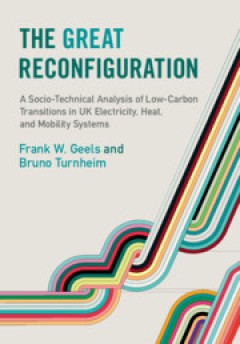
The great reconfiguration : a socio-technical analysis of low-carbon transiti…
This book is intended for researchers, policymakers, and practitioners interested in the dynamics and governance of low-carbon transitions. Drawing on the Multi-Level Perspective, it develops a whole system reconfiguration approach that explains how the incorporation of multiple innovations can cumulatively reconfigure existing systems. The book focuses on UK electricity, heat, and mobility sys…
- Edition
- -
- ISBN/ISSN
- 9781009198233
- Collation
- xiii, 399p.; ill.
- Series Title
- -
- Call Number
- 333.70941 GEE t

Laws of the sea : interdisciplinary currents
Assembling scholars across multiple orientations - from legal studies, geography, anthropology, cultural and political theory, the environmental humanities, and ocean studies - this book connects law to the broader humanities in order to critically engage contemporary concerns with the fate of the ocean. Although the United Nations' monumental 'Convention on the Law of the Sea' imagines an all-…
- Edition
- -
- ISBN/ISSN
- 9781003205173
- Collation
- xv, 302p. ; ill.
- Series Title
- -
- Call Number
- 341.45 LAW l
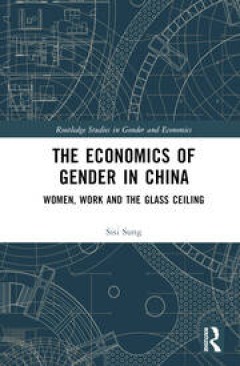
The economics of gender in China : women, work, and the glass ceiling
China's rapid socio-economic development has achieved remarkable equalizing conditions between men and women in the aspects of health, education and labor force participation, but the glass ceiling phenomenon has become more prominent. The book develops a cross-disciplinary paradigm, with economics at its core, to better understand gender in China and women in management in the Chinese business…
- Edition
- -
- ISBN/ISSN
- 9781003307563
- Collation
- xi, 229p.
- Series Title
- Routledge studies in gender and economics
- Call Number
- 331.40951 SUN t
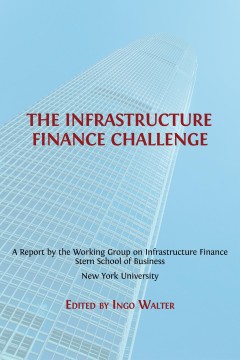
The infrastructure finance challenge : a report by the Working Group on Infra…
Infrastructure and its effects on economic growth, social welfare, and sustainability receive a great deal of attention today. There is widespread agreement that infrastructure is a key dimension of global development and that its impact reaches deep into the broader economy with important and complex implications for social progress. At the same time, infrastructure finance is among the most c…
- Edition
- -
- ISBN/ISSN
- 9781783742950
- Collation
- 126p. : ill.
- Series Title
- -
- Call Number
- 363 WAL t

A short history of transport in Japan from ancient times to the present
A Short History of Transport in Japan from Ancient Times to the Present is a unique study: the first by a Western scholar to place the long-term development of Japanese infrastructure alongside an analysis of its evolving political economy. Drawing from New Institutional Economics, Black offers an historically informed critique of contemporary planning using the example of Japan’s historical …
- Edition
- -
- ISBN/ISSN
- 9781800643581
- Collation
- xv, 299p. ; ill.
- Series Title
- -
- Call Number
- 388.0952 BLA a
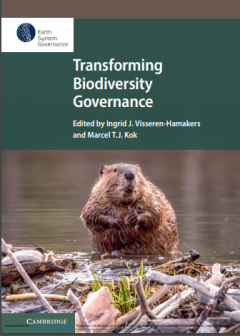
Transforming Biodiversity Governance
Over fifty years of global conservation has failed to bend the curve of biodiversity loss, so we need to transform the ways we govern biodiversity. The UN Convention on Biological Diversity aims to develop and implement a transformative framework for the coming decades. However, the question of what transformative biodiversity governance entails and how it can be implemented is complex. This bo…
- Edition
- -
- ISBN/ISSN
- 9781108856348
- Collation
- xviii, 390p,: ill
- Series Title
- -
- Call Number
- 346.04695 ING
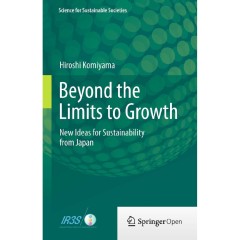
Beyond the limits to growth: new ideas for sustainability from japan
Sustainable Development; Energy Policy, Economics and Management; Energy Efficiency (incl. Buildings); Climate Change Management and Policy; Renewable and Green Energy; Environmental Engineering/Biotechnology
- Edition
- -
- ISBN/ISSN
- 9783662549971
- Collation
- iv, 131 p. : ill.
- Series Title
- Science for Sustainable Societies
- Call Number
- -
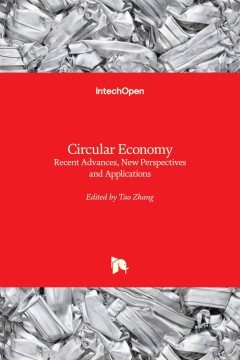
Circular Economy
Nowadays, the restriction of resources and the environment is very severe. A circular economy is the only way to sustainable development, but how this works still needs more exploration. The series of studies carried out by the author are described in detail in this book.
- Edition
- -
- ISBN/ISSN
- 9781838810719
- Collation
- xiii, 128p. : ill,
- Series Title
- -
- Call Number
- 338.927 TAO e
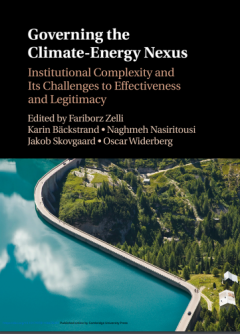
Governing the Climate-Energy Nexus
Combating climate change and transitioning to fossil-free energy are two central and interdependent challenges facing humanity today. Governing the nexus of these challenges is complex, and includes multiple intergovernmental and transnational institutions. This book analyses the governance interactions between such institutions, and explores their consequences for legitimacy and effectiveness.…
- Edition
- -
- ISBN/ISSN
- 9781108676397
- Collation
- xviii, 294p,: ill
- Series Title
- -
- Call Number
- 393.73874561 GOV
 Computer Science, Information & General Works
Computer Science, Information & General Works  Philosophy & Psychology
Philosophy & Psychology  Religion
Religion  Social Sciences
Social Sciences  Language
Language  Pure Science
Pure Science  Applied Sciences
Applied Sciences  Art & Recreation
Art & Recreation  Literature
Literature  History & Geography
History & Geography